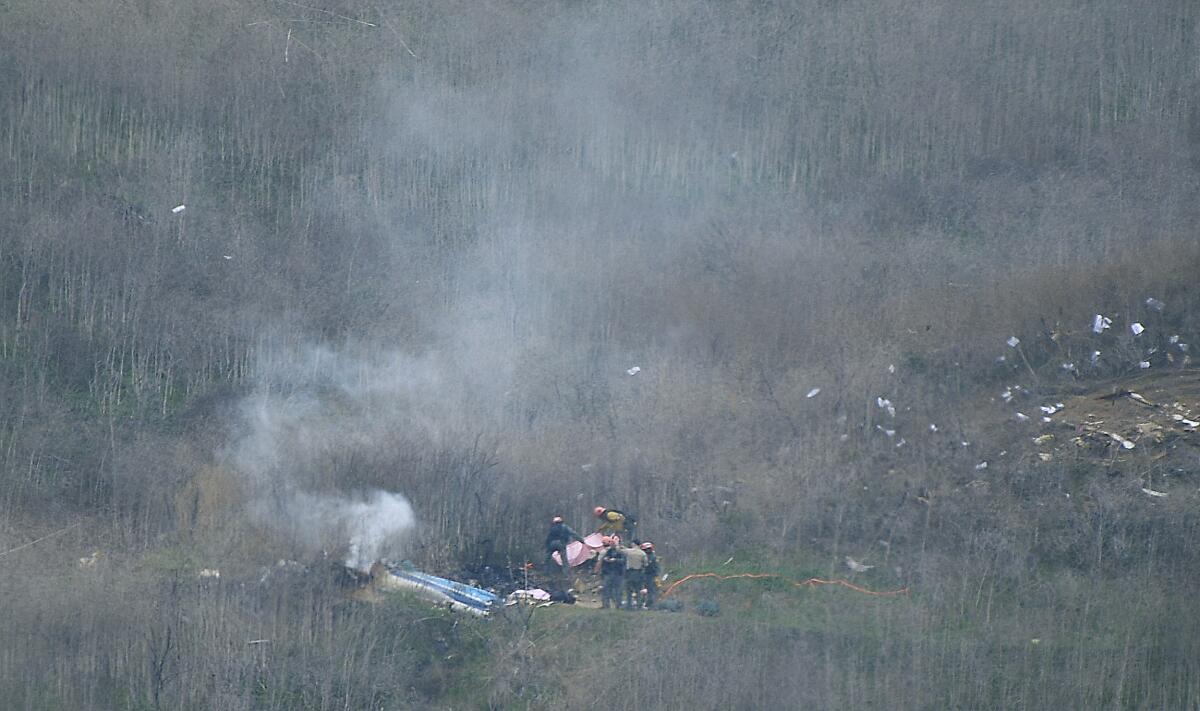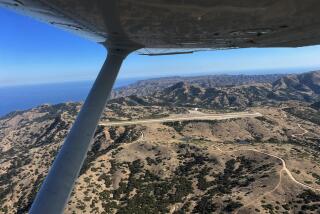Kobe Bryant flew in thick fog that had grounded law enforcement helicopters

Did foggy weather Sunday morning play a role in the helicopter crash that killed Kobe Bryant, his 13-year-old daughter and seven others?
That is a key question as federal investigators on Monday begin an intense investigation into the cause of the crash.
The helicopter, a Sikorsky S-76 built in 1991, departed John Wayne Airport at 9:06 a.m. Sunday, according to publicly available flight records. The chopper passed over Boyle Heights, near Dodger Stadium, and circled over Glendale during the flight. The crash occurred shortly before 10 a.m. near Las Virgenes Road and Willow Glen Street in Calabasas.
How dangerous was the weather?
The potential risks were serious enough that law enforcement choppers were grounded.
Los Angeles Police Department spokesman Josh Rubenstein said the department’s Air Support Division grounded its helicopters Sunday morning because of foggy conditions and didn’t fly until the afternoon.
“The weather situation did not meet our minimum standards for flying,” Rubenstein said. The fog “was enough that we were not flying.”
LAPD’s flight minimums are 2 miles of visibility and an 800-foot cloud ceiling, he said. The department typically flies two helicopters when conditions allow: one in the San Fernando Valley and one in the L.A. Basin.
The Los Angeles County Sheriff’s Department made a similar assessment about the fog and had no helicopters in the air Sunday morning “basically because of the weather,” L.A. County Sheriff Alex Villanueva said.
Kurt Deetz, a former pilot for Island Express Helicopters who used to fly Bryant in the chopper, said weather conditions were poor in Van Nuys on Sunday morning — “not good at all.”
The crash was more likely caused by bad weather than engine or mechanical issues, he said.
“The likelihood of a catastrophic twin engine failure on that aircraft, it just doesn’t happen,” Deetz said.
Could Bryant’s chopper fly?
Bad weather would not necessarily have prevented Bryant’s helicopter from flying because it should have been equipped with instruments that allow pilots to fly in inclement conditions, experts said. But if not using the instruments, the pilot would have been operating the helicopter under visual flight rules, or VFR, which require good visibility.
An audio recording of an exchange between the pilot and air traffic controllers indicates that he was flying under visual flight rules, but that could not be confirmed Sunday night. At one point, the pilot tells a controller that he is “in VFR at 1,500” feet.
Aviation consultant William Lawrence, a retired Marine Corps colonel and helicopter test pilot and instructor, said investigators from the National Transportation Safety Board, which has dispatched a team to the crash site, should have little trouble determining whether it was a mechanical failure or weather-related, or both.
Even if the pilot had been flying on instruments, the helicopter could have experienced a mechanical problem.
“And if he is in the fog and on instruments and has an emergency, it makes recovery from that emergency far, far more difficult,” Lawrence said. “Any emergency is amplified when you can’t see your surroundings.”
Where does the investigation go now?
The Federal Aviation Administration and National Transportation Safety Board are investigating the crash. The FBI is also assisting in the probe, which is standard practice. The NTSB database does not show any prior incidents or accidents for the aircraft. The helicopter was registered to the Fillmore-based Island Express Holding Corp., according to the California secretary of state’s business database. The helicopter’s manufacturer, Sikorsky, said in a statement Sunday that it is cooperating with the investigation.
The NTSB was dispatching a “go team,” a squad of investigators that responds to major accidents across the country, said Christopher O’Neil, an agency spokesman.
Leading the investigation is Jennifer Homendy, an NTSB member who oversaw the investigation of a fire aboard the dive boat Conception, which killed 34 people off Santa Cruz Island in September.
More to Read
Sign up for Essential California
The most important California stories and recommendations in your inbox every morning.
You may occasionally receive promotional content from the Los Angeles Times.













